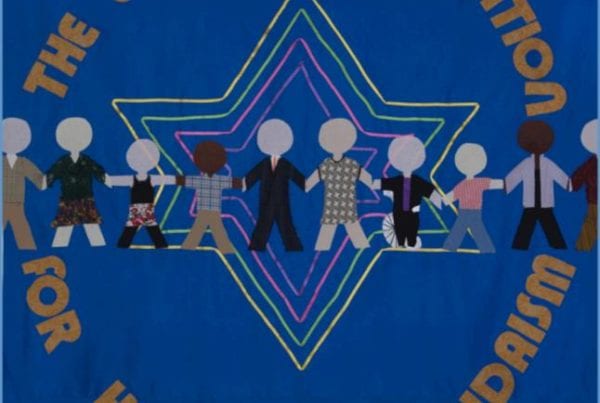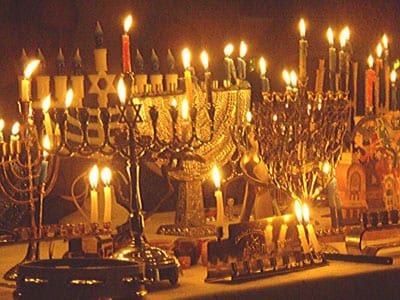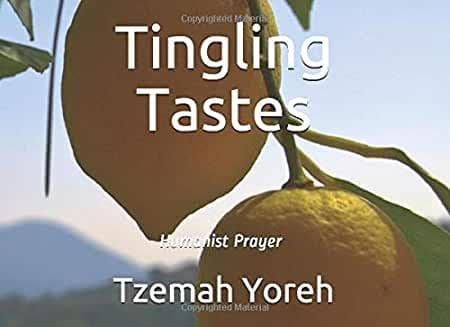Trauma Transformed
Mike Otterman
Yom Kippur 2016
I struggled with this essay more than I thought I would. I understood the brief that Rabbi Peter gave me — or at least I thought I did. He asked me:
– What was it like to grow up in a home with a cloud over it?
– How did I navigate situations on the receiving end of trauma?
– And most importantly, how do I forgive?
After much reflection, I realized I have never been the recipient of deep-rooted trauma. I’ve broken my leg, gotten a few stitches, and experienced the death of my grandparents. But I have not yet lost anyone close to me, never been the victim of a crime, a fire, an overdose, an arrest, a fight, a bad break-up, a bike accident, or even a run-of-the-mill road rage incident!
My childhood was calm. I didn’t have undo stress or pressure from my parents to overachieve in school or sports. I grew up in suburban Long Island: Roosevelt Field shopping mall, Jones Beach, and the Poconos were my orbit growing up.
Many of you may know that my father is a child Holocaust survivor. My grandparents survived as well. I can’t blame Rabbi Peter for thinking there might have been a dark cloud hanging over my childhood related to my family’s Holocaust past. It would have certainly made for a harrowing Yom Kippur speech! But the truth is that their Holocaust experiences did not impact my childhood in overtly negative ways.
My dad was – and still is – a loving father. I have fond memories of going to the local amusement park on the weekends to play pinball and ride the carousel. When he got home from work we’d kick around the soccer ball, or throw the frisbee in the backyard. He was always at my school graduations and plays. He was a silly guy my friends enjoyed interacting with. Sometimes they’d poke fun at his vaguely European accent. And he’d play along, putting on his best Arnold Schwarzenegger impression.
From my vantage point, my father deals with his childhood pain in a personal, yet well-adjusted way: by writing poetry and fiction about the Holocaust, plus sharing his personal story at schools, synagogues, and with scholars. And today he is devoting his time to philanthropy as a way to give back even more.
I’m not saying he is free from the shadow of his past. At times he can be distant and slow to react, as if enveloped in thick, impenetrable fog. From his stories and recollections I know that he witnessed some of the worst horrors of the Holocaust – beatings, a man murdered at close range, a potential rape. But his personal struggle with trauma is his story to tell, not mine in this speech.
I don’t have to forgive him for ruining my childhood by darkening it with the Holocaust. He never let his traumatic past transfer to me.
Hearing about the harrowing escapes, the ingenuity of my grandmother in staying one step ahead of the Nazis, of the sheer luck, and yes, miracles of survival, filled me with a sense of wonder, gratitude, and an optimistic take on the world. No matter how bad it is, it can always get better.
It’s no coincidence that, like my sisters, I’ve worked in journalism and human rights my whole life. I think the lesson he gave me growing up – and still gives me today with his philanthropy – is that while senseless brutality exists, so does kindness, empathy and joy. And through focused, dedicated work these three things can be nurtured, leveraged and amplified.
The survival stories I heard while growing up fortified me in interesting ways. My first book, for example, traced American use of torture in Latin America, Southeast Asia and the Middle East. As part of my research, I analyzed hundreds of images depicting suffering and abuse, read through CIA torture manuals, and interviewed former Guantanamo inmates about the pain and humiliations they endured. My second book tackled the humanitarian impact of US aggression in Iraq. For this project I interviewed dozens of Iraqi refugees in Syria and Jordan, recording their stories of devastating loss and uncertainty about the future.
When the books were published, people asked me how I was able to handle such confronting material. The answer has to do with my childhood. I think I was inoculated at a young age about the existence of evil. It doesn’t shock me. I learned as a child that fear compels people to do evil things. And given the right (or wrong) influences and incentives, we are capable of evil ourselves.
Knowing this has enabled me to work with both victims and perpetrators – and it has given me the ability to visit and learn from some of the world’s darkest landscapes.
While working for the Auschwitz Institute – a non-profit organization that teaches government officials how to prevent mass atrocities – I visited the death camps in Poland. Standing on the train platform in Birkenau – the very place my grandfather stood awaiting selection roughly seventy years earlier – I was filled with a sense of awe. The family story I heard so many times played out before my eyes. I saw my grandfather herded off the train, passing selection, then shoved back onto a cattle car destined for a work camp in Dachau. As the scene faded back into present day, I was filled with a feeling of purpose – a personal responsibility to build a world free from genocide.
An equally powerful vision filled my mind’s eye in August. This summer I was in Hiroshima, Japan, on behalf of our family foundation. Standing at the hypocenter, or ground zero, of the world’s first atomic bomb used in war, I felt the searing heat, saw the flash, and pictured the nearby buildings, and the people within, crumbling, and being swept away.
Later that day I met a survivor of the bomb, a former student at a school located only a thousand feet from the hypocenter. The Honkawa Elementary School lost about 400 students, its principal, and more than 10 teachers to the bomb. In the basement of the school is a small museum and memorial. Amid display cases of melted glass bottles, fire-singed school uniforms, and urns of ash and human remains dug up from the schoolyard, the survivor explained how Honkowa was first used as a neighborhood first aid station before it reopened as a place of learning six months after the blast. When it rained, classes were canceled because water seeped in through large ceiling cracks and empty window frames. In the winter, students huddled together under blankets, while teachers tended open fires to keep their students warm.
More than 150,000 women, men and children died from the atomic blast in his city from horrific physical injuries and burns – melted skin, hair and eyes – and later, from painful radiation poisoning. In the decades that followed, cancers claimed tens of thousands more across the city. Yet this atomic bomb survivor did not express anger or hatred for the U.S. Instead, he stressed the solidarity among Hiroshima residents in the blast’s wake. The only way to live through the bomb’s aftermath was to rise above the ashes, envision a more peaceful future and work towards it. Forgiveness, he said, was necessary to survive – to unshackle from the horror of the past.
I’m unsure how much anger my father still clings to. Or whether he has truly forgiven the Germans and Poles for the terrors they unleashed more than seventy years ago. But what I do know is this:
His trauma never traumatized me.
An initial trauma can be unavoidable. But what happens next is a choice. Once inflicted, it can fester and spread like a pathogen from one generation to the next. Or it can transform. Personal pain and collective trauma can be integrated, then dispersed. The pain can transmute into something good, into healing through art, music, or education.
From my father – and from my time in Hiroshima and Auschwitz – I’ve learned that collectively we can transcend our dark past. We can rebuild. We can forgive. And we can create a more just and peaceful world together. Thanks Dad.



